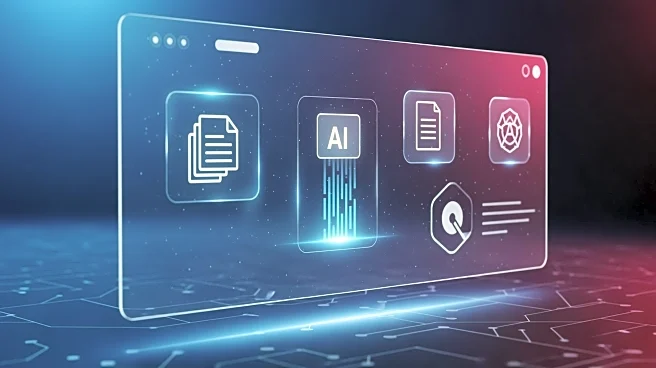Rapid Read • 8 min read
Intel is integrating artificial intelligence into K-12 educational technologies, significantly transforming the learning environment. The company is equipping devices with Intel Core Ultra processors, which include central, graphics, and neural processing units (NPUs). These components enhance the AI capabilities of personal computers, allowing teachers to better monitor student progress, customize lessons, and boost engagement. Snow White, Intel's director of education sales strategy, highlights that devices with NPUs are not just AI-capable but are considered AI PCs. This advancement supports optimized learning software, providing additional security and extending the lifespan of educational devices.
AD
The integration of AI in educational devices is crucial as it addresses diverse learning styles and needs, making education more personalized and effective. By leveraging AI, schools can enhance the educational experience, ensuring that students receive tailored instruction that can lead to improved academic outcomes. The use of AI also introduces additional security measures, protecting both students and educational data. This technological advancement could lead to a more efficient allocation of educational resources and potentially reduce the digital divide by providing advanced learning tools to a broader range of students.
As AI technology continues to evolve, schools may increasingly adopt AI-powered devices to stay competitive and meet educational demands. This could lead to further collaborations between technology companies and educational institutions to develop more sophisticated learning tools. Additionally, there may be a push for training educators to effectively use these technologies, ensuring that they can maximize the benefits of AI in the classroom. The ongoing development of AI in education could also prompt discussions on ethical considerations and data privacy, as schools navigate the balance between technological advancement and student safety.
The introduction of AI in education raises important ethical and cultural questions. As AI becomes more prevalent, there is a need to consider the implications of data collection and privacy in schools. Additionally, the cultural shift towards technology-driven education may impact traditional teaching methods and require educators to adapt to new roles as facilitators of technology-enhanced learning. Long-term, this could lead to a redefinition of educational success and the skills deemed necessary for future generations.
AD
More Stories You Might Enjoy











